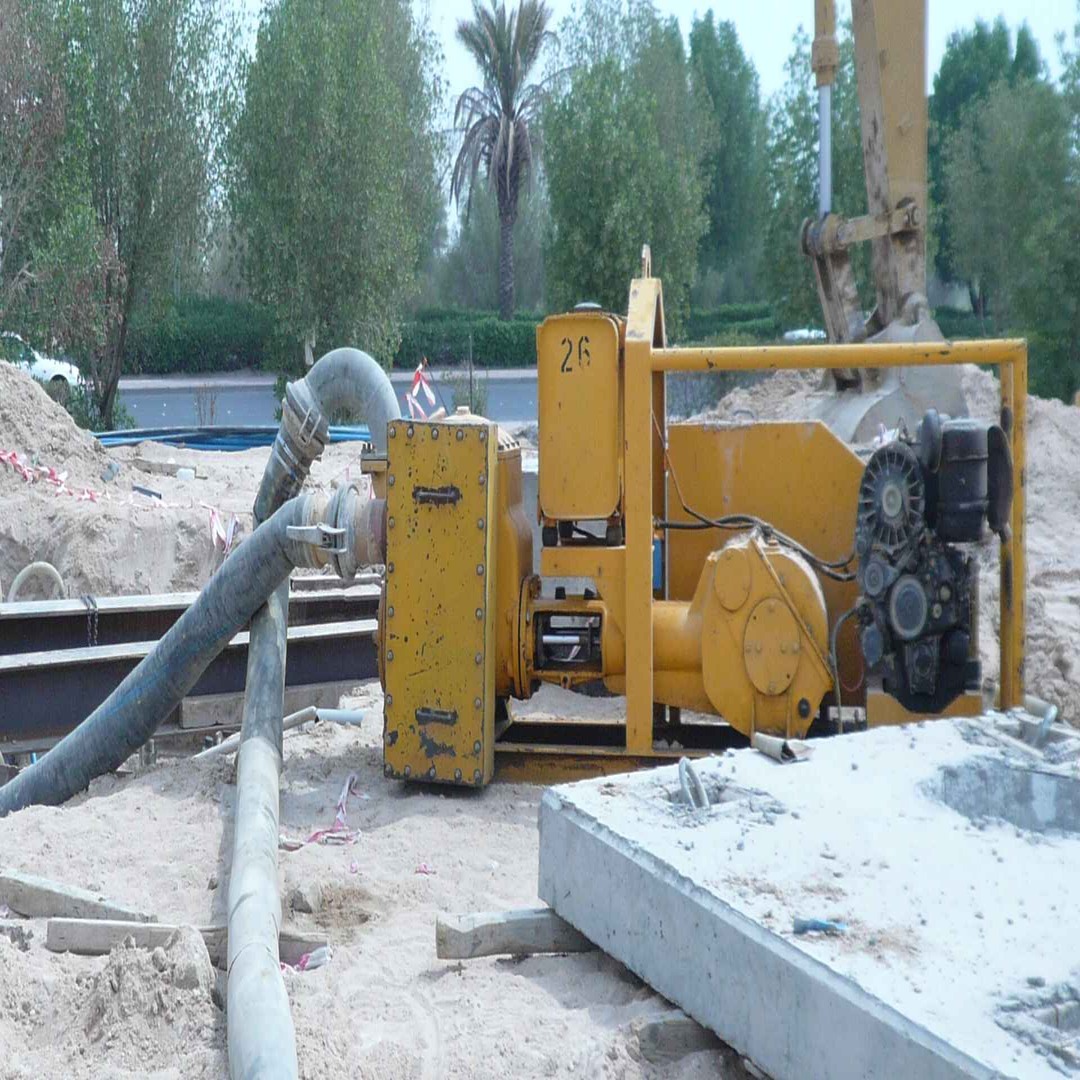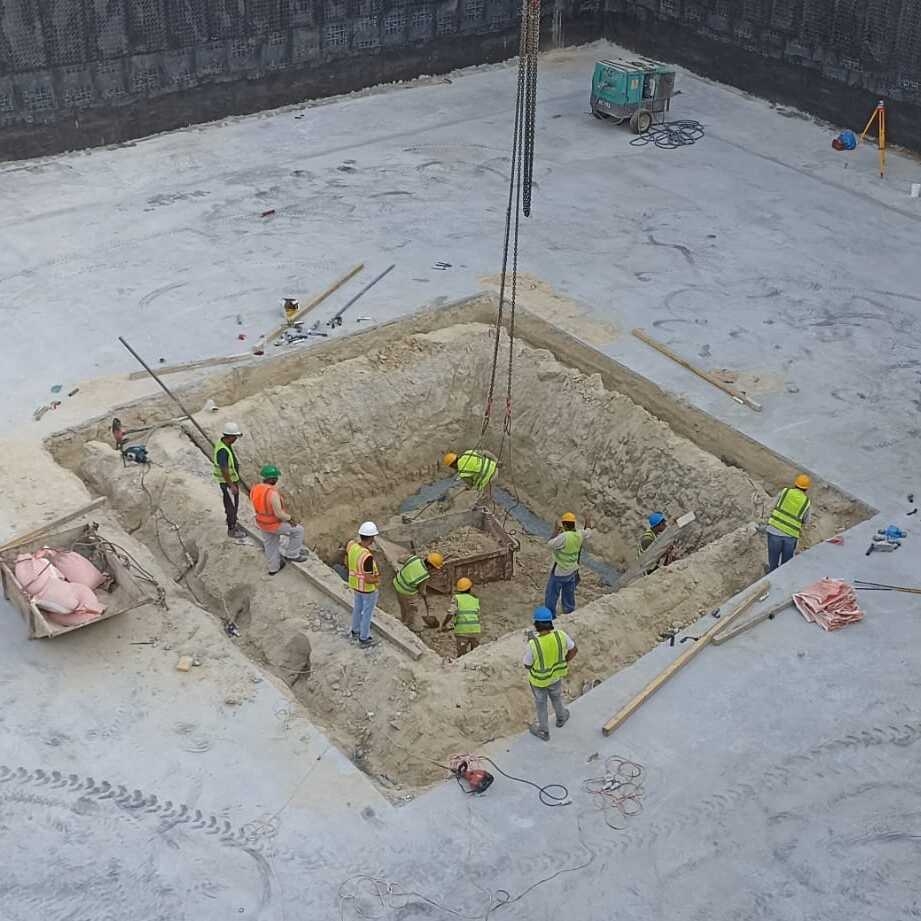Dewatering Services

Dewatering is an essential process utilized across multiple industries, including construction, mining, and civil engineering, to effectively manage excess groundwater or surface water in challenging environments. Its primary purpose is to establish a safe and stable working environment by controlling water levels. The presence of excessive water can lead to detrimental consequences such as soil erosion, compromised foundations, and damage to structures and equipment. By efficiently removing the water, dewatering mitigates these risks, improves project efficiency, and ensures a smooth workflow.
To achieve successful dewatering, specialized equipment tailored to the specific site requirements is employed. This equipment includes pumps, wellpoints, or trench drains, each designed to redirect or extract water effectively. By implementing these tools, construction activities can proceed without interruption, even in the face of inclement weather conditions. Dewatering acts as a shield, protecting projects from the adverse effects of water accumulation, minimizing delays, and maintaining project timelines.
In addition to the immediate benefits, dewatering also plays a critical role in the long-term success and sustainability of projects. By preventing soil erosion and foundation instability, it establishes a solid base for construction, ensuring the durability and longevity of structures. Furthermore, responsible dewatering practices contribute to environmental protection by controlling the spread of contaminants and pollutants. This commitment to environmental stewardship minimizes the impact on surrounding ecosystems and water bodies, aligning projects with sustainable development goals.
When undertaking any construction or excavation project, partnering with experienced dewatering professionals is vital. Their expertise, combined with specialized equipment, ensures optimal water management and effective dewatering solutions. By prioritizing the control of water levels, projects can minimize risks, safeguard assets, and maintain efficient progress. Dewatering serves as an indispensable ally in the successful execution of projects, optimizing working conditions, and delivering timely and high-quality results.
Types of Dewatering we offer:

Sump pumping
Sump dewatering is a method used to control groundwater levels in construction sites or excavations. It involves creating a sump pit or well to collect groundwater, and submersible pumps are used to remove the water from the site. This technique is effective in areas with high water tables, ensuring a dry and safe working environment. By implementing open sump dewatering, construction projects can proceed smoothly, mitigating risks associated with water accumulation and maintaining project timelines.
Well Point
Wellpoint dewatering is a method used to control groundwater levels in construction sites. It involves installing small wells, called wellpoints, around the site. A vacuum or suction system is connected to the wellpoints to draw water from the surrounding soil, lowering the water table. This technique creates a dry working area, reduces the risk of soil erosion and foundation instability, and allows for efficient construction processes. Wellpoint dewatering is effective in areas with high water tables and permeable soils, providing a safe and stable environment for construction activities.
Deepwell
Deepwell dewatering is a method used to lower groundwater levels in deep excavations or construction sites with significant water inflow. It involves drilling deep boreholes, installing pumps, and extracting water from underground aquifers. This technique effectively manages water in deep construction sites, providing a safe and stable working environment. Deepwell dewatering is particularly useful in areas with complex geology or high water tables, allowing construction activities to proceed smoothly and minimizing water-related disruptions.
